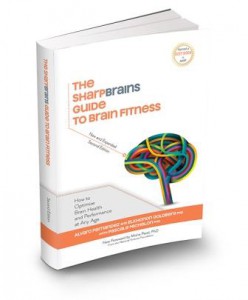Interview: The SharpBrains Guide, adopted as core reader in neuroscience and coaching course
 Dr. Justin Kennedy holds the position of Professor of Organizational Behavior and Regional Dean of Africa at UGSM-Monarch Business School Switzerland. He holds a Doctor of Professional Studies with UGSM-Monarch Business School Switzerland as well as a Bachelor of Social Science in Psychology from Rhodes University, SA. Dr. Kennedy returned to the academic field after a 20 year international corporate career in Ireland, New York and South Africa.
Dr. Justin Kennedy holds the position of Professor of Organizational Behavior and Regional Dean of Africa at UGSM-Monarch Business School Switzerland. He holds a Doctor of Professional Studies with UGSM-Monarch Business School Switzerland as well as a Bachelor of Social Science in Psychology from Rhodes University, SA. Dr. Kennedy returned to the academic field after a 20 year international corporate career in Ireland, New York and South Africa.
Prof. Kennedy, please tell us a bit about your personal and professional background
I worked as a management consultant and executive coach until I had an accident and fell into a coma. I became interested in the brain after recovering from it, with the help of my brother. That got me thinking about brain research.
What areas of brain science are you most interested in?
Applied research interests me most. I am also keen to work with teens as these are very intense times for them. We are about to publish a paper showing how biofeedback-based tools can help reduce exam anxiety and lead to improved learning and academic results.
What and where are you teaching, and why did you create your course?
I teach Introduction to Neuroscience Coaching at the University of Pretoria. It is an inter departmental qualification, in partnership with Monarch Business School.
Do you see a lot of interest in South Africa about applied neuroscience? In what way?
These is a lot of interest but quite fluffy, floating around like you can expect in any new domain I suppose. Now, this course is also offered in a full online format so we get plenty of interest outside South Africa.
What are the 2–3 key things you’d like all your students to take-away from your course?
The most important thing is that biology is NOT destiny! This has been proven over and over, but students still overrate the impact of their genes. One needs to focus really REALLY hard to build up enough working memory and process new patterns that break old ones. Our behaviour, not our genes, carve our destinies.
What are the main misconceptions they often bring to class, and how do you debunk them?
Students often think they might find a silver bullet by studying the brain but, if anything, continued diligence is that bullet, albeit not made of quicksilver. Making some changes is great, but keeping them is what is really needed, and a whole other story.
How did you first hear about SharpBrains?
I was referred to your website and book by a conference co-ordinator when I presented a paper last year.
Why did you decide to adopt The SharpBrains Guide to Brain Fitness for your course, and how do you plan to use it?
It is a comprehensive and easy-to-follow book, so we’ll use it as a core reader, integrating it within the curriculum and the discussions. Am getting great feedback already!
What excites you the most about the next time you’ll teach your course? When is that, and where can people learn more about it?
The next edition of the course will be online. We expect to have several hundred students, and to have Alvaro Fernandez as guest lecturer to discuss the book. More info is available at Introduction to Neuroscience Coaching (opens PDF).
Thank you very much for being with us today
My pleasure!


